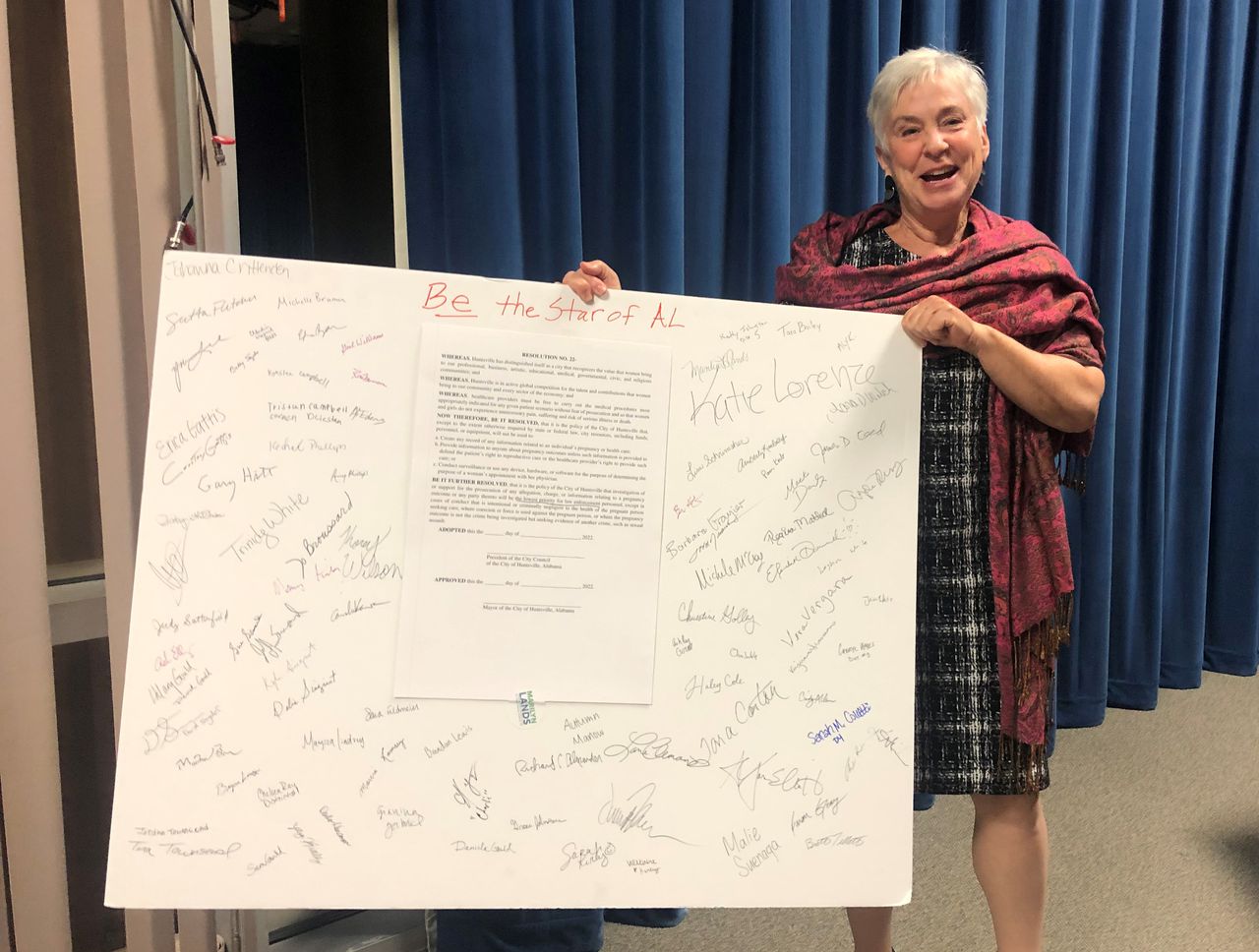Huntsville won’t ‘implement squads’ seeking abortion law violations
Huntsville police will not take extraordinary steps to investigate pregnant women or their doctors under Alabama’s abortion ban, two city administration officials said Thursday.
“Simply put, we’re not going to implement squads running out and looking into all this stuff and creating an issue,” City Attorney Trey Riley told the city council. “That’s just not how we operate. And that’s not what we’re going to do and the general public needs to be assured of that.”
Related: Huntsville to debate making abortion investigations ‘lowest priority’
Related: How will Alabama prosecutors handle abortion cases in wake of Roe v. Wade ruling?
During a presentation to the council, City Administrator John Hamilton said police will enforce the law on abortion just as they do every other law. But he said they won’t go out looking for violations.
The presentation came as the council considered, then passed, a resolution by Councilwoman Frances Akridge aiming to provide “assurance” to doctors and patients concerned about enforcement of abortion laws that police do not have their eyes fixed on potential crimes related to abortions.
Police typically open investigations after someone brings them an allegation of a crime, Hamilton said. He told the city council that the police would first consult with the Madison County District Attorney’s Office before moving forward or bringing criminal charges against a doctor.
“I have certainly seen people that have a perception that (Huntsville) law enforcement … is potentially just going around looking for a crime like this,” Hamilton told the council. “And that’s just not the way they do business. This type of allegation is something that would come to them and they would receive it and then have to determine whether or not there’s probable cause to even pursue it further.”
Hamilton emphasized that there would be “significant collaboration” between police and prosecutors in such an investigation.
The council passed an amended version of Akridge’s resolution in a 4-1 vote. Councilwoman Jennie Robinson cast the dissenting vote.
Akridge said she has heard from constituents afraid that they could be investigated or prosecuted should a pregnancy end before a child is born. She brought a poster to the council meeting signed by dozens of people supporting her resolution. Two women spoke at the council meeting in favor of the resolution.
Under Alabama law, doctors can be charged with a felony if they perform an abortion. The resolution, Akridge said, was intended to calm those fears while also attempting to separate Huntsville from the stigma she said Alabama has. The new law forbidding most abortions is considered to be among the nation’s strictest.
The law, originally passed in 2019, took effect after the U.S. Supreme Court earlier this year overturned Roe v. Wade, allowing states to make their own laws on abortion. Alabama’s abortion law permits terminating a pregnancy only in the mother’s life is in danger. The law said no woman who has received an abortion or an attempted abortion is criminally or civilly liable.
Hamilton said police will enforce the law on abortion just as they do every other law. But the language of the original resolution, which called for police to make abortion investigations its “lowest priority” was not appropriate, Hamilton said.
“That doesn’t have meaning inside of HPD because it’s just not the way the criminal investigation division works,” Hamilton said.
The “lowest priority” language was removed from the amended resolution. The amended resolution was reduced from a full page of text to about a half page.
As it relates to abortions, the resolution said, “Whereas, healthcare providers must be free to carry out the medical procedures most appropriately indicated for any given patient scenario without fear of prosecution and so that women and girls do not experience unnecessary pain, suffering and risk of serious illness or death.
“Now, therefore, let it be resolved, that it is the policy of the city of Huntsville that, as it relates to Alabama House Bill 314, municipal resources shall only be used in accordance with the provisions of the subject law and the enumerated rights and restrictions defined therein.”
Akridge said she was satisfied with the new resolution and that it achieved her objective.
“Some might say their fears were unfounded or irrational,” Akridge said after the meeting. “I refuse to put a label on that.”
Part of her motivation, Akridge said, was workforce development and recruitment – a critical issue as Huntsville has grown into the state’s largest city.
“What I was trying to accomplish was a message that we are not the 1920s or even the 1960s Alabama that people think about,” Akridge said. “I don’t know that we’re progressive but (Huntsville is) not like that. I wanted to baby step to separate ourselves (from Alabama’s reputation) because it’s time we do something to separate ourselves, not just talk about the challenge and the liability of our last name — because it’s real. This was a baby step. And because we’re on a competition of a world stage.”
Hamilton said he met with Akridge, Riley and his staff for about two hours Thursday going through the resolution and weeding out “unintended consequences” for law enforcement investigations in the original language. That included text about not maintaining any information related to a pregnancy’s outcome unless it is used to defend the patient or healthcare provider.
Hamilton said that language could inhibit the police department’s investigations of statutory rape or the death of a newborn, for example.
In voting against the resolution, Robinson said the better alternative might be to ask the state legislature to provide protections for healthcare providers in state law rather than in a municipal resolution.
“This is a resolution that doesn’t have the force of law,” Robinson said. “I mean, it’s a resolution. It’s a feel-good kind of thing. But it really doesn’t change anything. I’m saying there just may be better ways to do what you’re trying to do.”
